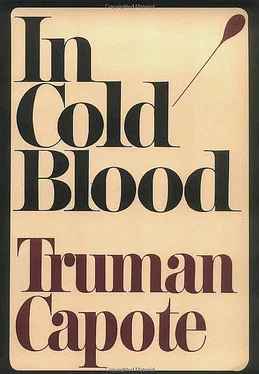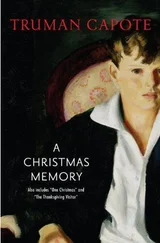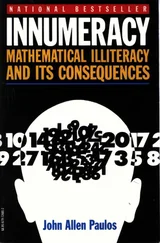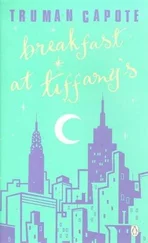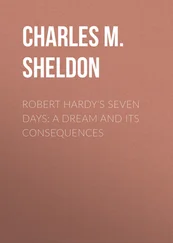“No. Anybody tells you anything about that up there [ Kansas State Penitentiary], you don’t pay any attention to it because you think they are just talking anyway.”
“You mean you talked that way and didn’t mean anything? Didn’t you mean to convey to him [Hickock] the idea that Mr. Clutter had a safe? You wanted Mr. Hickock to believe that, did you not?’
In his quiet way, Fleming was giving the witness a rough time Wells plucked at his tie, as though the knot was suddenly too tight.
“And you meant for Mr. Hickock to believe that Mr. Clutter had a lot of money, didn’t you?”
“I told him Mr. Clutter had a lot of money, yes.”
Fleming once more elicited an account of how Hickock had fully informed Wells of his violent plans for the Clutter family. Then, as though veiled in a private grief, the lawyer wistfully said, “And even after all of that you did nothing to discourage him?”
“I didn’t believe he’d do it.”
“You didn’t believe him. Then why, when you heard about the thing that happened out here, why did you think he was the one that was guilty?”
Wells cockily replied, “Because it was done just like he said he was going to do!”
Harrison Smith, the younger half of the defense team, took charge. Assuming an aggressive, sneering manner that seemed forced, for really he is a mild and lenient man, Smith asked the witness if he had a nickname.
“No. I just go by ‘Floyd.’”
The lawyer snorted. “Don’t they call you ‘Squealer’ now? Or do they call you ‘Snitch’?”
“I just go by ‘Floyd,’ “ Wells repeated, rather hangdog.
“How many times have you been in jail?”
“About three times.”
“Some of those times for lying, were they?”
Denying it, the witness said that once he’d gone to jail for driving without an operator’s license, that burglary was the reason for his second incarceration, and the third, a ninety-day hitch in an Army stockade, had been the outcome of something that happened while he was a soldier: “We was on a train trip guard. We got a little intoxicated on the train, done a little extra shooting at some windows and lights.”
Everyone laughed; everyone except the defendants (Hickock spat on the floor) and Harrison Smith, who now asked Wells why, after learning of the Holcomb tragedy, he had tarried several weeks before telling the authorities what he knew. “Weren’t you,” he said, “waiting for something to come out? Maybe like a reward?”
“No.”
“You didn’t hear anything about a reward?” The lawyer was referring to the reward of one thousand dollars that had been offered by the Hutchinson News, for information resulting in the arrest and conviction of the Clutter murderers.
“I seen it in the paper.”
“That was before you went to the authorities, wasn’t it?” And when the witness admitted that this was true, Smith triumphantly continued by asking, “What kind of immunity did the county attorney offer you for coming up here today and testifying?”
But Logan Green protested: “We object to the form of the question, Your Honor. There’s been no testimony about immunity to anybody.” The objection was sustained, and the witness dismissed; as he left the stand, Hickock announced to everyone within earshot, “Sonofabitch. Anybody ought to hang, he to hang. Look at him. Gonna walk out of here and get that money and go scot-free.”
This prediction proved correct, for not long afterward Wells collected both the reward and a parole. But his good fortune was short-lived. He was soon in trouble again, and, over the years, experienced many vicissitudes. At present he is a resident of Mississippi State Prison in Parchman, Mississippi, where he is serving a thirty-year sentence for armed robbery.
By Friday, when the court recessed for the weekend, the state had completed its case, which included the appearance of four Special Agents of the Bureau of Investigation in Washington, D.C. These men, laboratory technicians skilled in various categories of scientific crime detection, had studied the physical evidence connecting the accused to the murders (blood samples, footprints, cartridge shells, rope and tape), and each of them certified the validity of the exhibits. Finally, the four K.B.I. agents provided accounts of interviews with the prisoners, and of the confessions eventually made by them. In cross-examining the K.B.I. personnel, the defense attorneys, a beleaguered pair, argued that the admissions of guilt had been obtained by improper means—brutal interrogation in sweltering, brightly lighted, closet-like rooms. The allegation, which was untrue, irritated the detectives into expounding very convincing denials. (Later, in reply to a reporter who asked him why he had dogged this artificial scent at such length, Hickock’s lawyer snapped. “What am I supposed to do? Hell, I’m playing without any cards. But I can’t just sit here like a dummy. I’ve got to sound off once in a while”)’
The prosecution’s most damaging witness proved to be Alvin Dewey; his testimony, the first public rendering of the events detailed in Perry Smith’s confession, earned large headlines (UNVEIL MUTE MURDER HORROR—COLD, CHILLING FACTS TOLD), and shocked his listeners—none more so than Richard Hickock, who came to a startled and chagrined attention when, in the course of Dewey’s commentary, the agent said, “There is one incident Smith related to me that I haven’t as yet mentioned. And that was that after the Clutter family was tied up, Hickock said to him how well built he thought Nancy Clutter was, and that he was going to rape her. Smith said he told Hickock there wasn’t going to be anything like that go on. Smith told me he had no respect for anyone who couldn’t control their sexual desires, and that he would have fought Hickock before allowing him to rape the Clutter girl. “Heretofore, Hickock had not known that his partner had informed police of the proposed assault; nor was he aware that, in a friendlier spirit, Perry had altered his original story to claim that he alone had shot the four victims—a fact revealed by Dewey as he neared the end of his testimony: “Perry Smith told me he wished to change two things in the statement he had given us. He said everything else in that statement was true and correct. Except these two things. And that was that he wanted to say he killed Mrs. Clutter and Nancy Clutter—not Hickock. He told me that Hickock… didn’t want to die with his mother thinking he had killed any members of the Clutter family. And he said the Hickocks were good people. So why not have it that way.”
Hearing this, Mrs. Hickock wept. Throughout the trial she had sat quietly beside her husband, her hands worrying a rumpled handkerchief. As often as she could she caught her son’s eye, nodded at him and simulated a smile which, though flimsily constructed, affirmed her loyalty. But clearly the woman’s control was exhausted; she began to cry. A few spectators glanced at her, and glanced away, embarrassed; the rest seemed oblivious of the raw dirge counter pointing Dewey’s continuing recitation; even her husband, perhaps because he believed it unmanly to take notice, remained aloof. At last a woman reporter, the only one present, led Mrs. Hickock out of the courtroom and into the privacy of a ladies’ room.
Once her anguish had subsided, Mrs. Hickock expressed a need to confide. “There’s nobody much I can talk to,” she told her companion. “I don’t mean people haven’t been kind, neighbors and all. And strangers, too—strangers have wrote letters to say they know how hard it must be and how sorry they are. Nobody’s said a mean word, either to Walter or me. Not even here, where you might expect it. Everybody here has gone out of their way to be friendly. The waitress over at the place where we take our meals, she puts ice cream on the pie and don’t charge for it. I tell her don’t, I can’t eat it. Used to be I could eat anything didn’t eat me first. But she puts it on. To be nice. Sheila, that’s her, she says it’s not our fault what happened. But it seems to me like people are looking at me and thinking, Well, she must be to blame somehow. The way I raised Dick. Maybe I did do something wrong. Only I don’t know what it could have been; I get headaches trying to remember. We’re plain people, just country people, getting along the same as everybody else. We had some good times, at our house. I taught Dick the foxtrot. Dancing, I was always crazy about it, it was my whole life when I was a girl; and there was a boy, gosh, he could dance like Christmas—we won a silver cup waltzing together. For a long time we planned to run away and go on the stage. Vaudeville. It was just a dream. Children dreaming. He left town, and one day I married Walter, and Walter Hickock couldn’t do step one. He said if I wanted a hoofer I should’ve married a horse. Nobody ever danced with me again until I learned Dick, and he didn’t take to it exactly, but he was sweet, Dick was the best-natured little kid.”
Читать дальше
